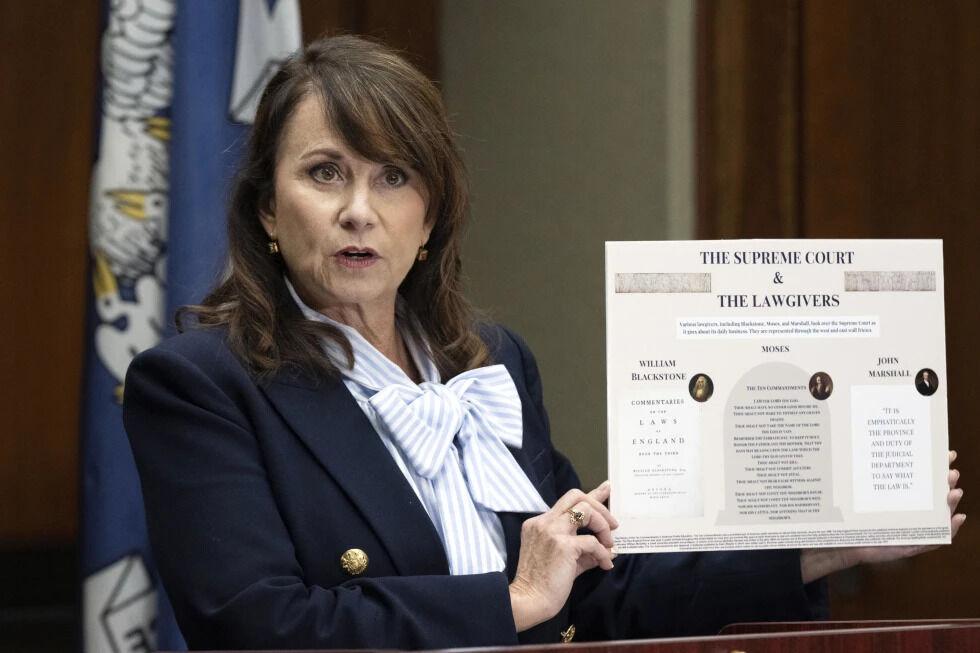With the country on edge watching key senatorial races, Louisiana voters head to the polls Tuesday to determine which political party will have control of the U.S. Senate.
Democrats have control of the Senate by one seat. Three Republican candidates are trying to force Democratic incumbent Mary Landrieu into a December runoff.
The Reveille gave each senatorial candidate an opportunity to speak to students on issues affecting their education and future.
JOHN COOKSEY, U.S. REPRESENTATIVE
What do you see as the major issues/ problems in higher education in the state? If elected, what would you do to help?
There is much that is good and positive in Louisiana higher education, including the support of Gov. Mike Foster for increased funding, and the TOPS program, which has not only made higher education more affordable but also has contributed to increased high school academic standards.
However, Louisiana higher education (particularly doctoral-degree-granting institutions) is underfunded in comparison with too many other states. Although basic higher education instructional funding primarily is a state issue, federal research grants and contracts are important to higher education in attracting highly qualified faculty and graduate students. Federal research funding also can play an integral role in the economic development so needed in Louisiana to provide attractive career opportunities for our graduates. The same is true for private support of research.
As the Republican U. S. Congressman for the 5th Congressional District, I was successful in obtaining federal research funding for Louisiana Tech University, and this research now shows promise for increased economic development in the Ruston area. As a U. S. Senator, I would make the same commitment to all of higher education in Louisiana for federal research funding and, additionally, use my office to encourage research funding from the private sector.
Why is it important for students to vote for U.S. Senator?
Students should vote in the upcoming U. S. Senate election as a matter of simple self-interest. Today’s students are the true stakeholders of the future of this state and the nation. They will benefit from the rewards of good government or be penalized by the consequences of bad government.
MARY LANDRIEU, U.S. SENATOR
(From La. Democratic Party Communications Director and University alumna Susan East)
What do you see as the major issues/ problems in higher education in the state? If re-elected, what would you do to help?
Sen. Landrieu supports legislation to consolidate student loans and legislation for students to get money for college, such as TOPS and federal programs.
Why is it important for students to vote for U.S. Senator?
College students and everyone between the ages of 18 and 25 have a say in this election because they are the ones to choose the Congress that will ensure that their generation will get the benefits of social security that older generations are enjoying now.
There is a lot at stake, because in 10 years college students are the ones who will be raising families.
TONY PERKINS, STATE REPRESENTATIVE
(From Press Secretary Gary Brown)
What do you see as the major issues/ problems in higher education in the state? If elected, what would you do to help?
The Foster administration has made great strides for secondary education by bringing more funding, foundation and infrastructure, such as helping to get high speed Internet on our college campuses and in the development of the second worldwide Internet.
This administration also helped LSU purchase the supercomputer to help it move toward the future of technology.
TOPS has been a big help to secondary education. More people are graduating. This also has to do with parental involvement, which Perkins encourages.
Why is it important for students to vote for U.S. Senator?
College students need to know that this is a critical election because the future of America rests in Louisiana’s hands. It is their civic duty, as well as an honor and a privilege, to vote.
SUZANNE HAIK TERRELL, COMMISSIONER OF ELECTIONS
What do you see as the major issues/ problems in higher education in the state? If elected, what would you do to help?
In Louisiana, we’re blessed by the TOPS program, which has expanded the opportunity to attend college to everyone who wishes to go. We have invested in our university system so these students will have a great education when they get there. But more money is needed, particularly federal research dollars, so that our universities here in Louisiana remain on the cutting edge of intellectual pursuit and laboratory research. The federal government is the main source of research and development dollars to universities, yet the incumbent senator has directed a minuscule amount in comparison to other states. If elected, Terrell will change that.
Why is it important for students to vote for U.S. Senator?
In America, of all the groups that turn out to the polls, students have the worst showing. Critical issues that will make the difference in the lives of college students today are being decided before the U.S. Congress. Despite this, 18- to 25-year-olds vote less than any other group. The future of social security, health care and a myriad of other issues that affect America’s college-age electorate will come before the next Congress.
Between Mary Landrieu and Suzy Terrell, there is a real difference; the difference is what the two candidates believe. Suzy Terrell stands for allowing young people to put aside part of their Social Security taxes so that there will be a retirement when they reach 65. Mary Landrieu does not. Suzy Terrell favors tax credits to individuals and small businesses, so the largest group of uninsured Americans, those between 18 and 25, can have access to health insurance. All this is dependent upon your vote.
The race is on
By Kayla Gagnet, Chief Staff Writer and Adam Causey, Contributing Writer
November 4, 2002
More to Discover







